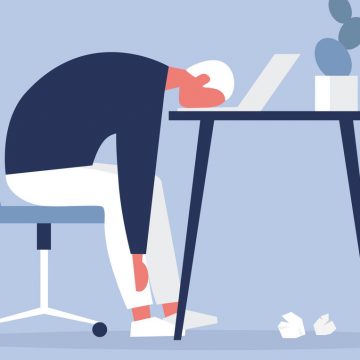When I started working as a lawyer, more than one well-meaning person told me to approach my legal career the same way I might approach a healthy lifestyle: work hard, try my best and “go with the flow.” I shouldn’t worry about all the problems that might arise, they said, because I could simply deal with them as they came.
This is popular advice for young lawyers. And, on a certain level, it makes sense. When we first start practising, we are often overwhelmed and out of our depth. So we have no choice but to keep our heads down, focus on the task at hand and concentrate on conquering the steep learning curve.
Following this advice made me a solid lawyer. But, in many ways, it also held me back. Not long ago, I made the leap from mid-level to senior lawyer. I’d just received a good performance evaluation, and I was excited to take some meaningful steps forward. Yet, to my disappointment, I found myself sitting in my office one afternoon and realizing that my next year on the job as a senior lawyer would look just like the last. I wouldn’t reap any of the benefits that I thought would come with this upward shift, namely an increase in status and compensation. It was not an easy pill to swallow. I was angry and frustrated. I honestly felt that things were not playing out fairly. Despite all the great work I thought I was doing, I was not advancing in the way I’d hoped.
After a period of (perhaps too much) self-loathing, I decided to step back and look at my situation objectively. The more I thought about it, the more it became clear to me that I wasn’t moving forward in my career because, as advised, I had adopted a head-down attitude that never allowed me to look forward to see where I was going.
Though I knew how to work hard and pay attention to detail, I had not thought carefully enough about the direction of my career. I had become too fixated on the next assignment. I didn’t take the proverbial “bull by the horns” like I should have.
The good news is that it wasn’t too late to correct course. Once I realized my mistake, I stopped focusing solely on my immediate work and started spending more time writing, marketing and networking. I started writing down my goals, not just a list of tasks to complete. That new way of thinking helped me take the next steps in my career path.
It’s always a good idea to take time to think about where you are in your journey as a lawyer. If you’ve already learned the ropes, it may be time to adopt a more forward-thinking approach. For instance, if you work at a firm and have your sights set on partnership, figure out what you need to do to get there. Don’t think of it as a promotion that may be granted if you do good work. Instead, build your profile, become more active in your firm outside of billable work and seek the advice of existing partners on how to advance.
Don’t get me wrong — there is no substitute for good work, and you should never lose sight of that. But it will only take you so far. Once you get over the learning curve, you have to make your own opportunities. You need to do more than go with the flow.
Daniel Waldman is a commercial litigator at Dickinson Wright LLP. He writes about career satisfaction and business development for Precedent.


